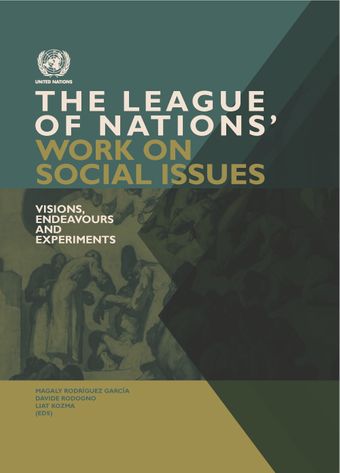Turf Wars at the league of nations: International anti-cannabis policies and oversight in Syria and Lebanon, 1919-1939

- مؤلف: Philippe Bourmaud
- العنوان الرئيسي: The League of Nations' Work on Social Issues , pp 75-87
- تاريخ النشر: مارس ٢٠١٦
- DOI: https://doi.org/10.18356/885ff099-en
- Language: الإنجليزية
The League of Nations social agendas frequently intersected with political issues. Agendas have dynamics of their own, but in promoting them, the League was constrained by other considerations, such as its refusal to combat colonialism. Thisdid not mean that social agendas were treated as subservient to colonial interests; rather, they reflectedthe emerging role of international organisations in policy-making alongside state policies. A case in point is the policies on cannabis in the mandatory French territories of Syria and Lebanon. Following the 1925 International Opium Convention, the League endorsed an anti-cannabis agenda, the enforcement of which placed the French administration under international supervision. Two League bodies were concerned with cannabis: the Opium Advisory Committee and the Permanent Mandates Commission. As Syria and Lebanon were becoming major cannabis producers, the two bodies competed for influence on mandate policy. In the face of French reluctance to prohibit cannabis in the mandate, this led to a hardening of the Leagues stance, compared to other sovereign or colonial territories.
© United Nations
ISBN (PDF):
9789210577021
Book DOI:
https://doi.org/10.18356/43045dc7-en
الموضوعات ذات الصلة:
Economic and Social Development
Sustainable Development Goals:
Countries:
Lebanon
;
Syrian Arab Republic
-
From This Site
/content/books/9789210577021c006dcterms_title,dcterms_subject,pub_keyword-contentType:Journal -contentType:Contributor -contentType:Concept -contentType:Institution105
/content/books/9789210577021c006
dcterms_title,dcterms_subject,pub_keyword
-contentType:Journal -contentType:Contributor -contentType:Concept -contentType:Institution
10
5

